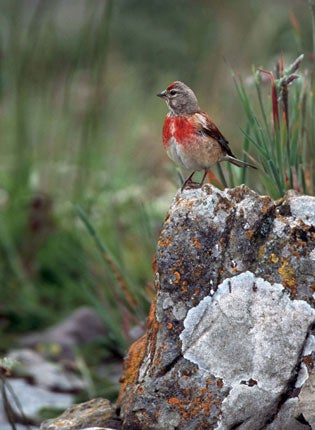Cuts will destroy rarest habitats in Britain, warn conservationists

Catherton Common reverberates with the distinctive song of skylarks. It boasts stunning views over the Shropshire countryside and is one of the most valuable spots for plants anywhere in Britain.
Just two years ago, its huge botanical diversity and nationally important populations of adders and other struggling native reptiles were under threat of disappearing. The farmers putting animals to graze the land were on the verge of giving up and the common would have deteriorated into scrubland with their departure.
The Shropshire Wildlife Trust determined to save the rare landscape from a damaging decline and bought the 527-acre common, a Site of Special Scientific Interest, to keep grazing going.
To buy the land in the Clee Hills, the trust was reliant on money provided by the aggregates levy sustainability fund, a scheme which has just been scrapped by the Government in a move that wildlife organisations have warned will make it far harder to protect the natural environment.
Until the Department for Environment Food and Rural Affairs decided to axe it as part of its cost-cutting programme, the fund provided £35m a year to reduce the environmental impacts of the aggregates industry as it dug sand, rock and gravel from the ground. Now the money, while still being collected as part of the aggregates levy as an environmental tax, will go straight into the Treasury's coffers.
John Hughes, of the Shropshire Wildlife Trust, said the loss of the fund will damage the ability of environmental groups to protect the landscape: "We weren't happy to hear the fund was disappearing. [It] has done so much environmental good to a county like Shropshire which has a lot of aggregate sites. The fund was addressing the blight that comes with aggregates extraction."
Seventy of the county's quarries qualified for payments from the fund. Of the Shropshire Wildlife Trust's 38 nature reserves, more than half contain or are next to disused quarries.
The Wildlife Trusts are urging the Government to reinstate the fund. As part of their efforts to win support, all 47 are writing to MPs in their areas.
Stephanie Hilborne, the Trusts' chief executive, said: "It's a familiar story about reducing... the size of the voluntary sector at a time when our challenges have never been greater. Investment in the environment is one of the best long-term investments you can make for society."
Subscribe to Independent Premium to bookmark this article
Want to bookmark your favourite articles and stories to read or reference later? Start your Independent Premium subscription today.

Join our commenting forum
Join thought-provoking conversations, follow other Independent readers and see their replies